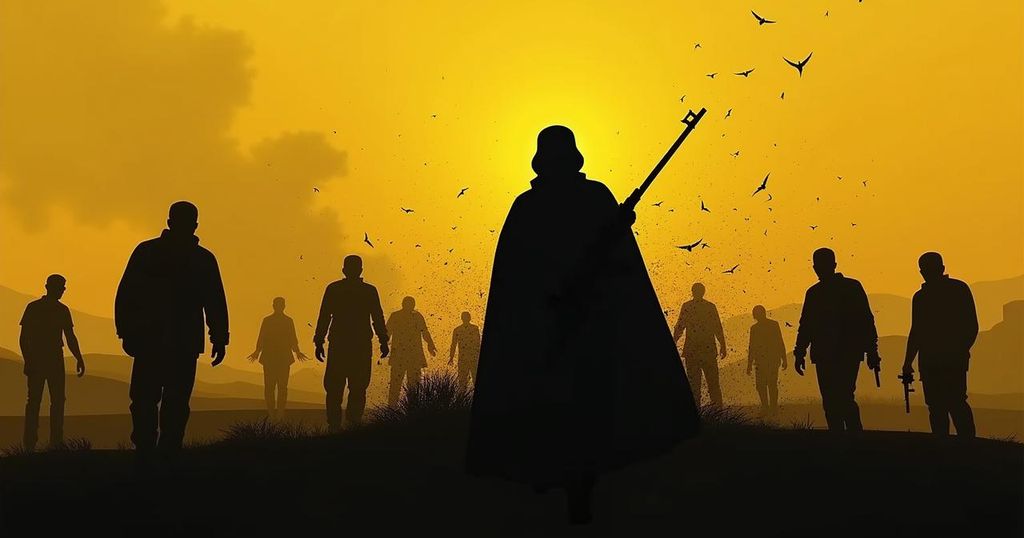Hezbollah Confirms Death of Leader Hassan Nasrallah in Israeli Airstrike

Hezbollah confirmed the death of its leader Hassan Nasrallah in an Israeli airstrike in Beirut. Nasrallah had led the group for over three decades, and his killing is a significant escalation in the ongoing conflict. The airstrike, which resulted in several casualties, occurred during a Hezbollah leadership meeting. Following the incident, reactions from both Hezbollah and Israeli officials suggest a continued escalation of hostilities, with Israel mobilizing additional military resources in response.
BEIRUT (AP) — Hezbollah confirmed on Saturday that its leader Hassan Nasrallah was killed in an Israeli airstrike in Beirut the previous day. In a statement, the group proclaimed that Nasrallah had “joined his fellow martyrs” and vowed to persist in its “holy war against the enemy and in support of Palestine.” Nasrallah, who had been at the helm of Hezbollah for over thirty years, marks the most significant figure to be killed by Israel amidst the ongoing conflict that has intensified in recent weeks. The Israeli military reported executing a precise airstrike on Friday while Hezbollah’s leadership convened at their headquarters in Dahiyeh, located south of Beirut. The Lebanese Ministry of Health reported that six individuals were killed, alongside 91 others injured, due to this strike, which resulted in the destruction of six apartment buildings. Additionally, Ali Karki, the commander of Hezbollah’s Southern Front, along with other high-ranking members, also lost their lives in the operation, according to Israeli sources. Iran stated that a senior general of its paramilitary Revolutionary Guard, Abbas Nilforushan, was among those killed in the airstrike. This event marks a critical escalation in the ongoing conflict between Israel and Hezbollah, bringing further hostilities to the region. In Israel, air raid sirens resonated throughout central areas, including at the international airport in Tel Aviv, shortly after Prime Minister Benjamin Netanyahu returned from a visit to the United States. Following the attack, the Israeli military reported intercepting a missile believed to have been launched from Yemen, although there were no injuries or specific targets confirmed. Israeli officials expressed that the elimination of Nasrallah was not the concluding action in their campaign against Hezbollah, with plans for additional strikes asserted. Defense Minister Yoav Gallant characterized the airstrike as “the most important targeted strike since the founding of the State of Israel,” signaling that Israel intends to escalate pressure on Hezbollah until its militaristic actions cease. Amidst mourning in Lebanon, crowds began firing into the air in tribute to Nasrallah, with profound shock among the populace. Many at the international airport displayed despair, seeking to exit the country amidst a backdrop of heightened tension. The recent escalation involves sustained cross-border strikes where Hezbollah began launching rockets into Israel following Hamas’s unprecedented assault on October 8. Overall, hostilities have caused mass displacement of civilians from both sides and continuing military confrontations. In reaction to the intensified conflict, Israel has mobilized additional reservists and altered military policies concerning public gatherings in light of potential threats. The ongoing fighting has resulted in severe casualties, with thousands affected on both sides, raising concerns for potential regional ramifications.
The background of this situation involves the long-standing conflict between Israel and Hezbollah, a militant group based in Lebanon. Over the years, tensions have periodically escalated into armed confrontations, with both sides engaging in military operations. Recently, there has been an intensification of hostilities, particularly following unprecedented attacks by Hamas on Israel, which prompted Hezbollah to reciprocate in support of Gaza. The death of Hassan Nasrallah marks a significant turning point in this conflict, potentially leading to further escalations as both parties react to the loss of key leadership figures.
The confirmation of Hassan Nasrallah’s death in an Israeli airstrike represents a pivotal moment in the ongoing conflict between Hezbollah and Israel. This incident not only underscores the precarious situation in Lebanon but also signifies potential escalations in military operations on both sides. As Israel vows to pursue further actions against Hezbollah, the regional implications of Nasrallah’s assassination remain uncertain, warranting close observation of potential retaliatory responses and shifts in the power dynamics within Hezbollah.
Original Source: www.pbs.org








